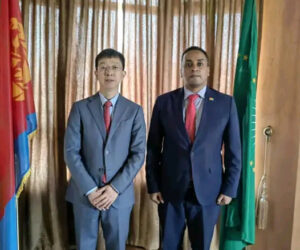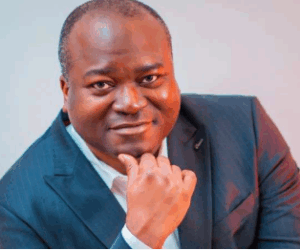2
“Power is a temporal gift, entrusted to a leader as an acceptable staff of authority by the people, and it’s a privilege emblem to serve humanity, and the ultimate aim is to exhibit the best of an accountable stewardship.”- DSM.
The unfortunate reality in Nigeria today is a stark contrast between the government’s actions and the needs of its citizens. While the government is preoccupied with awarding contracts, often inflated for personal gain, the very people who should benefit from these projects – the Nigerian populace – are facing increasing threats to their safety and well-being.
This tragic irony highlights a critical failure in governance, where the prioritization of personal enrichment by our leaders overshadows the fundamental responsibility of protecting the lives and property of the citizenry.
A truly empathetic government would prioritize the security and welfare of its people above all else. Instead, the current focus appears to be on self-serving practices, with corruption and the political maneuvering for the 2027 elections dominating the political landscape. This preoccupation with political gamesmanship further exacerbates the security crisis, leaving communities vulnerable and forcing them to take matters into their own hands.
Across Nigeria, communities are increasingly being forced to establish their own security measures, highlighting the government’s failure to provide adequate protection. This desperate situation underscores the tragic reality that safety and security, fundamental rights of every citizen, have been transformed into commodities, exploited for profit by hardened and uncaring leaders.
The very notion of a social contract, where the government provides security in exchange for the consent of the governed, seems to have been eroded. This breakdown of trust between the government and its people is a dangerous trend, further destabilizing the nation and fostering a climate of fear and uncertainty.
The focus on personal gain at the expense of public safety is not only morally reprehensible but also strategically shortsighted, as it undermines the very foundation of a stable and prosperous society. The Nigerian people deserve a government that prioritizes their well-being, not one that treats their safety as a bargaining chip or a source of personal enrichment.
The current situation demands immediate attention and a fundamental shift in priorities, placing the security and welfare of all Nigerians at the forefront of the national agenda. The future of Nigeria hinges on the government’s ability to fulfill its core responsibility of protecting its citizens and ensuring a safe and secure environment for all.
Equall, across Nigeria, a disturbing trend has emerged: the proliferation of non-state actors operating as independent militias, destabilizing communities and jeopardizing the safety and security of citizens. These groups, often operating outside the bounds of law and accountability, engage in acts of violence, destruction, and intimidation, creating an atmosphere of fear and uncertainty that permeates daily life. No longer are homes sanctuaries; the threat of violence looms large, both day and night, disrupting the peace and tranquility that are fundamental to a thriving society.
This disconnect between the leadership and the lived realities of many citizens is starkly illustrated by tragic incidents, such as the recent boat mishap in Sokoto State. A family of six perished in this incident while desperately attempting to flee relentless bandit attacks on their ancestral lands. Driven from their homes by the persistent threat of violence, they sought refuge in a perilous escape, highlighting the devastating consequences of insecurity and displacement.
Furthermore, disturbing reports emerge from Katsina State, where bandits have reportedly forced men into slave labor on their farms, subjecting them to inhumane conditions and brutal exploitation. The most vulnerable members of the community, the elderly and the infirm, have faced even more horrific fates, often murdered in cold blood. These acts of barbarism underscore the severity of the security crisis and the urgent need for effective intervention.
Tragically, the deadly attacks that have ravaged communities in Benue and Plateau states have been dismissed by some as mere media propaganda orchestrated by the current regime. This dismissive attitude minimizes the suffering of countless victims and hinders efforts to address the root causes of the violence. The failure to acknowledge and address these crises perpetuates a cycle of violence and instability.
A similar pattern of violence and insecurity is evident in parts of Imo and Anambra States, where kidnapping and murder have become tragically commonplace. These criminal activities have morphed into a lucrative industry, preying on vulnerable citizens and undermining the rule of law. The pervasiveness of these crimes underscores the urgent need for effective law enforcement and judicial responses.
The activities of these non-state actors are no longer clandestine operations shrouded in secrecy. Kidnappings, brutal attacks, and insurgent activities have become commonplace, occurring openly and with alarming frequency. This brazen disregard for human life and the rule of law underscores the urgent need for effective intervention and restoration of security.
This proliferation of armed groups undermines the authority of the state and erodes the trust necessary for social cohesion and development.The escalating violence has reached a horrifying crescendo, with reports of human lives being treated as commodities, traded, butchered, and even sold as meat in some regions.
This descent into barbarism represents a profound moral crisis, a stark departure from the fundamental principles of human dignity and respect for life. The sanctity of human life, once a cornerstone of societal values, has been tragically eroded, replaced by a callous disregard for human suffering. The widespread nature of these atrocities indicates a systemic breakdown of law and order, leaving communities vulnerable and exposed to unimaginable horrors.
The emergence of cannibalistic practices, once unthinkable, further highlights the depths of depravity to which some elements of society have sunk. This horrific reality demands immediate and decisive action to address the root causes of this crisis and bring those responsible to justice.The prevailing climate of insecurity has transformed fundamental human rights – safety, security, and well-being – into bargaining chips, exploited for personal gain and treacherous betrayals. This perversion of basic human rights underscores the erosion of ethical values and the urgent need to reaffirm the principles of justice, equality, and respect for human dignity.
The very foundations of a just and equitable society are threatened when the protection of its citizens is compromised and their well-being is subject to negotiation and exploitation.
This situation demands a comprehensive and multifaceted response that addresses the underlying causes of insecurity, strengthens the rule of law, and promotes a culture of respect for human rights. The restoration of peace and security requires a collective effort from all stakeholders, including government, civil society, and international partners, and this is to ensure that, the rights and well-being of all Nigerians are protected and upheld… but the only absurdity in Nigeria’s leadership context is that,
“Greed is not natural. It’s an insatiable insanity amongst most of our present leaders.” – DSM, even though that I come in PEACE.
Dr. Sunny Oby Maduka (DSM), is an Author, Resource Personality, Management Consultant/ Trainer, Chartered/Certified – Au d i t o r / A c c o u n t a n t , Financial Compliance Expert, Economic/Political Analyst Strategist, Marine Expert and Motivationist)







